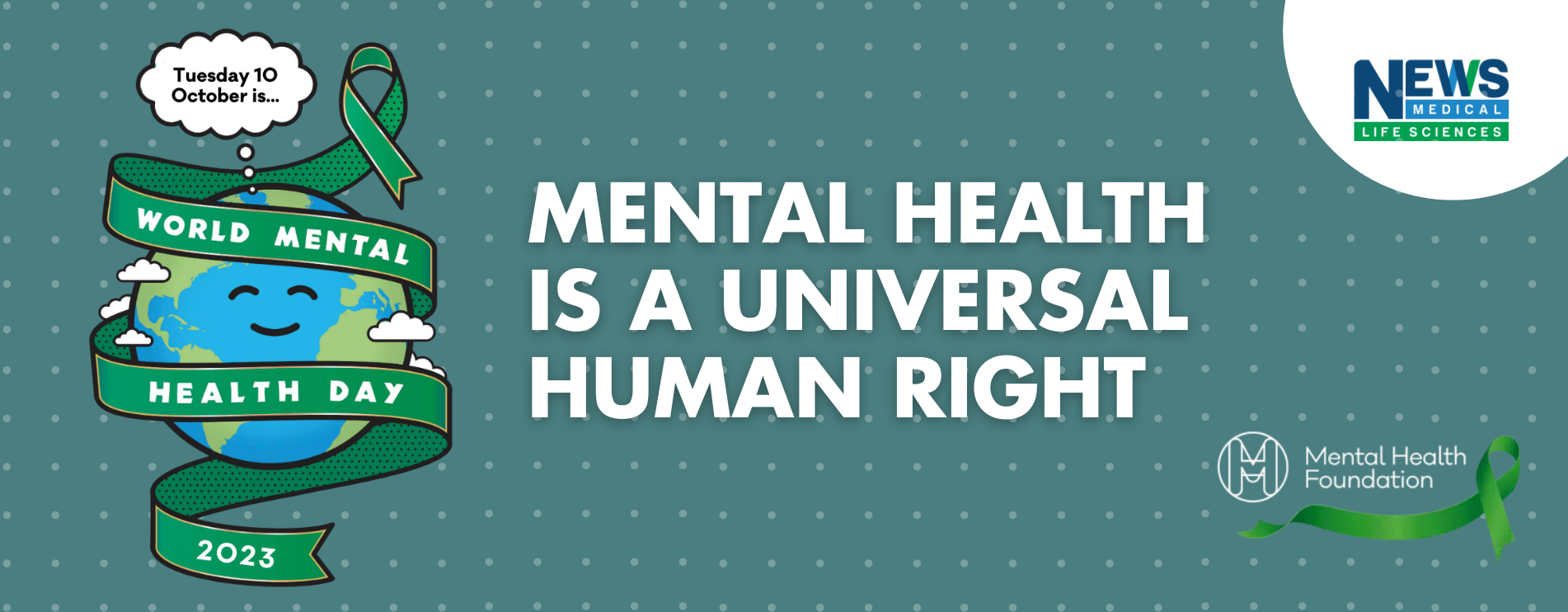Please introduce yourself, share your career background, and provide an overview of MQ Mental Health Research and its mission?
I joined MQ Mental Health Research as the CEO in early 2020. We were mid lockdown and it felt like society was waking up to how fragile both our health infrastructure was and the importance of health research.
As the world waited with bated breath for scientists to develop a vaccine for COVID, MQ was focused on what we do best. Bringing together the experts from across mental health science to identify and answer the questions about how COVID infection, lockdowns and pandemic induced anxiety was impacting the worlds mental health.
At the time MQ had been funding research for just seven years, but was already punching above it’s weight. As a global funder, MQ supports researchers worldwide and across different scientific disciplines so that we can better understand different mental health conditions, develop better treatments and improve access to them, and ultimately one day prevent mental illnesses all together.
MQ: Transforming Mental Health
October 10th marks World Mental Health Day, with the theme being 'Mental health is a universal human right.' Can you share the significance of this year's theme in the context of MQ's Mental Health Reserchs mission and objectives?
There is no health without mental health. However, it gets little attention in comparison to physical health. Whilst access to physical healthcare is universally accepted as a basic human right, far too many people worldwide have little to no access to mental health care.
1 in 4 people will be impacted by a mental illness, and people with serious mental illnesses pass away on average 20 years earlier than the general population.
Here in the UK it can take up to 10 years to get a diagnosis for a mental illness. Waiting lists for treatments are long; even when you get access to help, existing interventions only work for 50% of people.
Around the world, in particular in low- and middle-income countries, there are still barriers to receiving even the most basic mental health care. Lack of infrastructure, trained staff, adequately funded services and stigmas are all roadblocks that prevent people from even accessing the help they have a right to. MQ aim to change that.

In your opinion, why is it essential for governments, institutions, and philanthropic organizations to prioritize and invest in mental health research?
Investment in mental health is the only way we can ensure everyone around the world can get access to the healthcare they have a right to. However, that doesn’t mean blindly throwing money at services. Policy makers and funders need to invest in research so that we know that the services and treatments being delivered to people in need actually work.
Without research, it’s just guesswork as to what treatments will be successful or how accessible services actually are.
Important work has been done in removing stigmas so that more people are now recognizing that they need help and asking for it. But without effective treatments, too many people won’t receive the help they deserve unless we invest more in research.
Our understanding of mental health conditions is way behind where it should be. Only investment in research can change that.
As the CEO of MQ Mental Health Research, what excites you the most about the future of mental health research, and what role do you see MQ playing in shaping that future?
There are many exciting developments that MQ has played a part in. We are understanding ever more about how intrinsically linked our mental and physical health is. From understating more about the role of inflammation in depression to identifying the links between hypermobility and anxiety. Now is an exciting time to work in mental health research.
We are utilizing new technologies both to understand how the brain works and to deliver effective digital therapies at scale. We have developed prediction tools to identify the children at the highest risk of developing mental illnesses in the future. We are using data science to spot trends in public health data.
I’m really excited about the future of mental health research and see MQ playing a pivotal central role in helping people to lead healthier, happier lives.
 Image Credit: Black Salmon/Shutterstock.com
Image Credit: Black Salmon/Shutterstock.com
How important is raising awareness for Mental Health, especially using public engagement initiatives such as World Mental Health Day in the pursuit to help people talk transformatively about mental health; access improved services and treatments more easily; take part in research; and invest their support in helping the next generation of those experiencing mental illness?
In the 10 years that MQ has been funding research, it is clear that there has been a big shift in attitudes towards mental health. People are more aware than ever of the symptoms of depression and anxiety, and there are far fewer stigmas.
People are less worried about talking and asking for help, and this is helping to save and change lives. This is largely thanks to the important initiatives of charities and awareness days such as World Mental Health Day.
But awareness raising is not enough. There is little point in encouraging people to ask for help if the help is not there.This is why it’s so important that research is carried out so that we can develop new treatments and improve service delivery.
This year, MQ is encouraging people to volunteer to take part in research. Many studies are looking for volunteers, whether that is to complete online surveys, interviews or even in-person trials.
If you are interested in taking part in research, you can find many studies that need volunteers here: https://participate.mqmentalhealth.org/
How does MQ Mental Health Research ensure that research investments lead to actionable insights and practical applications that benefit those living with mental health conditions?
MQ is focused on impact, we do not only seek to grow our scientific understanding, but we invest in research that will have a transformative effect on peoples lives.
MQ champions PPIE (Patients and public involvement and engagement) in research. Meaning we involve people with lived experience in the design and implementation of research. This ensures we are asking the right people the right questions in the right way.
Our strategy is to engage the right people in research, to challenge inequalities by funding research where it is needed the most, to grow talent by supporting early career researchers, and to invest in impactful research.
Part of our work is to present the evidence we collect from policymakers and decision-makers at local, national, and international levels to ensure research is actioned at a wider level.
Given your extensive experience in the charity sector, what unique approaches or strategies has MQ Mental Health Research employed to drive forward its mission, particularly during the COVID-19 pandemic?
MQ is a great convener of people. Through our global network of experts, we have brought together the leading voices of different disciplines to collaborate and share knowledge from different sectors.
Historically, medical research (particularly mental health research) was very siloed. So experts in neuroscience rarely collaborated on research with psychologists, data scientists with psychiatrists, etc.
For example, in 2020, MQ and the Academy of Medical Sciences convened a meeting of experts to identify the research priorities for mental health during the pandemic.
This resulted in a groundbreaking position paper being published in the Lancet, which became the most cited paper of that year and helped researchers worldwide focus their efforts on finding answers that really helped people.
How MQ Fights Anxiety With Research
MQ Mental Health Research focuses on growing talent in mental health research. How does the organization plan to increase the size and diversity of the mental health research workforce, and why is this essential for transforming mental health?
To transform mental health, we need a cadre of highly skilled researchers passionate about using their expertise to benefit people’s lives. Mental health research is constrained by the scale of the workforce, with an urgent need to increase its size and diversity.
MQ Supports talented, early-career researchers across the globe through our flagship Fellows program. By nurturing this talent, MQ is not only growing the mental health research workforce but also increasing the diversity within it.
90% of the researchers MQ has funded have gone on to secure long-term funding or permanent positions within the mental health science sector.
In your experience and looking into the future, what are some of the most promising areas within mental health research that deserve increased investment and attention?
Prevention, prevention, and prevention.
75% of mental illnesses develop in childhood; historically, only 26% of all research has been conducted on children and young people. By improving how we detect mental illnesses at the first signs of symptoms, providing effective early interventions and support, and identifying and removing the drivers of mental ill-health, we can not only save people from years of struggle but improve productivity and reduce future costs to health services.
Lastly, how do you and the rest of the MQ team plan to celebrate and get involved with World Mental Health Day 2023?
There are three things we are doing this year. The first is we, along with over 30 other charities and mental health organizations, are calling on all political parties to make improved mental health a manifesto commitment ahead of the next election. You can read more about this joint call here: https://www.mqmentalhealth.org/building-a-mentally-healthier-nation/
Secondly, we are encouraging more people to get involved with research by volunteering to take part in studies here: https://participate.mqmentalhealth.org/
Lastly, research needs funding, so we are asking people to give what they can afford to support MQ, or to raise money by taking on a challenge. You can find out more here: https://www.mqmentalhealth.org/get-involved/
Where can readers find more information?
About Lea Milligan
 Lea Milligan is the CEO of MQ Mental Health Research; Chair of Collective Voice, the UKs Drug and Alcohol Services Network, and a All Party Parliamentary Group for a Fit and Healthy Childhood member. His background is in delivering education and health programs, capacity building, and research in low resource settings in the UK and West Africa. His career began delivering cognitive behavioral therapy (CBT) and trauma informed alternative education programs in prison and alternative community education centers before becoming COO of a charity-led group of alternative provision-free schools, nurseries and women's centers in Tower Hamlets supporting outcomes in education, mental health, and employment.
Lea Milligan is the CEO of MQ Mental Health Research; Chair of Collective Voice, the UKs Drug and Alcohol Services Network, and a All Party Parliamentary Group for a Fit and Healthy Childhood member. His background is in delivering education and health programs, capacity building, and research in low resource settings in the UK and West Africa. His career began delivering cognitive behavioral therapy (CBT) and trauma informed alternative education programs in prison and alternative community education centers before becoming COO of a charity-led group of alternative provision-free schools, nurseries and women's centers in Tower Hamlets supporting outcomes in education, mental health, and employment.
Lea was CEO for 4 years at Mercy Ships - a medical capacity building and surgical platform delivering lifesaving and life-changing procedures across West Africa. He was part of a team that cofounded the Harvard Center for Global Surgery Evaluation (CGSE) 2018 that produced scientific research focused on outcomes to increase access to surgical care and inform surgery policy on a global scale. He oversaw the launch of a BMJ supplement on safe surgical access. In 2020, Lea became the CEO of MQ Mental Health Research and has overseen the launch of the new strategy focusing on developing early career researchers and translational research in the mental health field on a global scale.
Lea is passionate about communicating mental health science to broad audiences and has been published in The Journal of Mental Health, The Parliamentary Review, The Guardian, London Economic and appeared as a mental health commentator for ITV News.